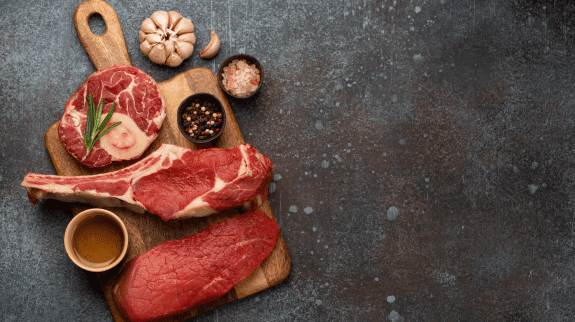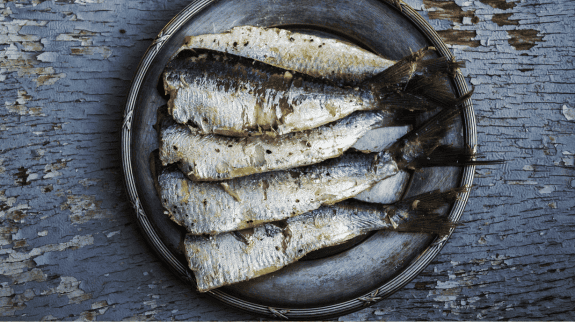KEY TAKEAWAYS
- The Carnivore Diet is a very restrictive diet that eliminates all plant-based foods and is based on eating only animal products.
- Advocates of the diet claim that it can help with weight loss, reduce inflammation, and improve overall health, while critics argue that it is unhealthy and can lead to nutrient deficiencies and other health problems.
- Despite the controversy surrounding the Carnivore Diet, many people are curious about it and want to know more.
The Carnivore Diet is a type of diet that is gaining popularity among people who are looking to lose weight and improve their health. As the name suggests, the diet is based on eating only animal products, such as meat, fish, eggs, and dairy. The diet has been around for a long time, but it has only recently gained attention in the health and wellness community.
The Carnivore Diet is a very restrictive diet that eliminates all plant-based foods, including fruits, vegetables, grains, and legumes. Advocates of the diet claim that it can help with weight loss, reduce inflammation, and improve overall health. However, critics argue that the diet is unhealthy and can lead to nutrient deficiencies and other health problems. Despite the controversy surrounding the diet, many people are curious about it and want to know more.
What is the Carnivore Diet

The Carnivore Diet is a dietary plan that involves consuming only animal products. It is also known as the all-meat diet or zero-carb diet. The diet is based on the idea that humans have evolved to eat meat and animal products, and that these foods provide all the necessary nutrients for optimal health.
On the Carnivore Diet, we consume meat, fish, eggs, and certain dairy products while excluding all plant-based foods. This means that we avoid fruits, vegetables, grains, legumes, and any other foods that come from plants.
The diet encourages the consumption of high-quality, fatty meats like beef, pork, and organ meats, as well as seafood, to provide necessary nutrients and energy. Some people also include small amounts of honey, salt, and pepper in their diet.
The Carnivore Diet is often used as a way to lose weight, improve digestive health, and reduce inflammation. However, there is limited scientific evidence to support these claims. The diet can also be challenging to follow, as it requires a significant shift in dietary habits and can be restrictive in terms of food choices.
Origins and Prominent Advocates
The carnivore diet is a dietary approach that emphasizes the consumption of animal-based foods and excludes all plant-based foods. While the idea of an exclusive meat diet can be traced back to the 19th century, the modern version of the carnivore diet has gained popularity in recent years.
Shawn Baker
One of the most prominent advocates of the carnivore diet is Shawn Baker, an orthopedic surgeon and former athlete. Baker is a vocal proponent of the carnivore diet and has been following it for several years.
Baker claims that the carnivore diet has helped him to improve his athletic performance, reduce inflammation, and improve his overall health. He has also written a book on the subject, called “The Carnivore Diet.”
The Carnivore Diet and Weight Loss
The carnivore diet has gained popularity in recent years due to its potential for weight loss. By cutting out all carbohydrates and plant-based foods, the body is forced to rely on fat stores for energy, resulting in weight loss.
Research has shown that low-carb diets, such as the ketogenic diet, can lead to significant weight loss in a short amount of time. The carnivore diet takes this a step further by eliminating all sources of carbohydrates, including vegetables and fruits, which can further enhance weight loss results.
The carnivore diet may be a viable option for those looking to jumpstart their weight loss journey. However, it is important to approach it with caution and to prioritize overall health and well-being.
Foods to Eat on the Carnivore Diet
When following the carnivore diet, the focus is on consuming animal products and byproducts. This includes meat, seafood, eggs, and small amounts of other dairy products like butter, cream, and cheese. In this section, we will discuss the different types of foods that you can eat while following the carnivore diet.
Meat and Seafood

Meat and seafood are the main staples of the carnivore diet. Some of the most popular meat options include beef, lamb, pork, chicken, and bison. These meats are all excellent sources of protein and can be cooked in a variety of ways, including grilling, baking, and frying.
Seafood is another great option for those following the carnivore diet. Fish like tuna, salmon, and sardines are all rich in protein and healthy omega-3 fatty acids. Shellfish like crab and scallops are also good sources of protein and can be a tasty addition to any meal.
Dairy Products

While the carnivore diet is primarily focused on meat and seafood, small amounts of dairy products can also be consumed. This includes items like butter, cream, and cheese. Full-fat dairy products are preferred, as they contain fewer carbs and more fat than their low-fat counterparts.
Yogurt is another dairy product that can be consumed on the carnivore diet. However, it’s important to choose a yogurt that is low in sugar and additives. Greek yogurt is a good option, as it is high in protein and low in carbs.
Beverages

When it comes to beverages, water is the best choice for those following the carnivore diet. It’s important to stay hydrated, especially when consuming large amounts of protein.
Coffee is another beverage that is allowed on the carnivore diet. However, it must be drunk black or with a small amount of cream. Avoid adding sugar or other sweeteners, as they are not allowed on the carnivore diet.
Foods to Avoid on the Carnivore Diet
When following the carnivore diet, we must avoid certain foods to achieve our desired health and fitness results. Here are the three main categories of foods to avoid:
Plant-Based Foods

On the carnivore diet, we must avoid all plant-based foods, including vegetables, fruits, grains, legumes, and seeds.
Processed Foods

Processed foods are also obviously not allowed on the carnivore diet. This also include processed meats like hot dogs and deli meats.
Also read: Best carnivore diet snacks
Sugary Drinks
Sugary drinks like soda and fruit juice are not allowed on the carnivore diet. These drinks are typically high in sugar and carbohydrates, which can lead to weight gain and other health issues. Instead, focus on drinking water, tea, and other low-carb beverages.
Potential Health Benefits
The carnivore diet has been touted as a potential solution for various health issues. Here are some of the potential health benefits of the carnivore diet:
Weight Loss

One of the most significant benefits of the carnivore diet is weight loss. This is because the diet eliminates high-carb, heavily processed ingredients, many of which are also high in calories. Decreasing your intake of these calorie-dense foods, such as chips, candy, crackers, and cookies, could potentially help promote weight loss. Additionally, the high protein and fat content in the diet can help reduce hunger and cravings.
Blood Sugar Regulation

The carnivore diet is naturally low in carbohydrates, which can help regulate blood sugar levels. This is because carbohydrates are broken down into glucose, which can cause blood sugar spikes and crashes. By eliminating carbohydrates, the carnivore diet can help stabilize blood sugar levels, which can prevent the brain fog that can come with fluctuations in glucose levels.
Improved Energy

Many people report increased energy levels on the carnivore diet. This is because the diet is rich in protein and fat, which can provide sustained energy throughout the day. Additionally, the elimination of carbohydrates can prevent the energy crashes that often come with consuming high-carb meals.
Improved Mental Health
Some people report improved mental health on the carnivore diet. This could be due to the elimination of processed foods and carbohydrates, which can negatively impact mood and mental health. Additionally, the high protein and fat content in the diet can help regulate hormones and neurotransmitters that affect mood.
Ketosis
The carnivore diet can induce a state of ketosis, which is when the body burns fat for energy instead of carbohydrates. This can lead to increased fat loss and improved insulin sensitivity. However, it is important to note that not everyone will enter ketosis on the carnivore diet, and it is quite hard to maintain.
Improved Immune System

The carnivore diet can potentially improve the immune system by eliminating foods that can cause inflammation and negatively impact the gut microbiome. Additionally, the high protein content in the diet can help support immune function.
Potential Risks and Side Effects
While the carnivore diet may have some potential benefits, it also poses several risks and side effects that should be considered before starting this diet.
Nutritional Deficiencies
Since the carnivore diet eliminates all plant-based foods, it may lead to nutritional deficiencies in fiber, vitamins, and minerals that are essential for our body’s proper functioning. So many people supplement the diets with supplements.
Also read: Best supplements for the carnivore diet 2023
Digestive Issues
The carnivore diet is high in protein and fat, which may cause digestive issues like diarrhea, bloating, and nausea. The high intake of saturated fat may increase the risk of heart disease, stroke, and other chronic diseases.
Long-Term Health Risks
The long-term health risks of the carnivore diet are still unknown. Since the diet is low in carbohydrates, it may lead to the production of ketones, which may cause inflammation and increase the risk of kidney disease.
Moreover, the high intake of salt may lead to high blood pressure and other health issues. It is essential to monitor our salt intake and stay hydrated to avoid any complications.
Carnivore Diet vs Other Diets
When it comes to diets, there are many options out there, each with its own set of pros and cons. In this section, we’ll compare the carnivore diet to some other popular diets, including the keto diet, paleo diet, and low-carb diet.
Also read: Atkins Diet vs. Other High Protein Diets
Keto Diet
The keto diet is a low-carb, high-fat diet that has gained popularity in recent years. Like the carnivore diet, it focuses on eliminating carbs and increasing fat intake. However, the keto diet allows for some non-animal-based sources of fat, such as avocados, nuts, and seeds. Additionally, the keto diet typically allows for a moderate amount of protein, whereas the carnivore diet is primarily focused on animal protein.
Paleo Diet
The paleo diet is based on the idea of eating like our ancestors did, with a focus on whole, unprocessed foods. It eliminates grains, legumes, and dairy, but allows for a variety of animal-based foods, including meat, fish, and eggs. While the carnivore diet is even more restrictive than the paleo diet, as it eliminates all plant-based foods, the two diets share a focus on animal-based proteins.
Low-Carb Diet
Low-carb diets, like the Atkins diet, have been popular for decades. These diets typically allow for a wider variety of foods than the carnivore diet, including some fruits and vegetables. However, they also limit carb intake and focus on increasing protein and fat intake. While the carnivore diet is the most restrictive of these diets, it shares a similar focus on eliminating carbs and increasing protein and fat intake.
Expert Opinions on the Carnivore Diet
The Carnivore Diet has been a topic of debate among nutritionists, dietitians, and medical professionals. While some experts believe that the diet can have some benefits, others warn that it can be harmful in the long run.
According to registered dietitian nutritionist, Susan Bowerman, RD, “The Carnivore Diet is a very restrictive diet that eliminates many important nutrients that our bodies need to function properly. It can lead to nutrient deficiencies, constipation, and other health problems.”
Many medical professionals and licensed practitioners also agree that the Carnivore Diet is not a sustainable or healthy way to eat. Dr. David Katz, MD, MPH, a board-certified specialist in preventive medicine and public health, warns that “the Carnivore Diet is not a balanced or healthy diet. It can lead to serious health problems, including heart disease, cancer, and other chronic conditions.”
Conclusion
In conclusion, the carnivore diet is a high-quality, meat-only diet that has gained popularity in recent years. While there are potential benefits to this diet, such as weight loss and improved health markers, it is important to consider the potential deficiencies that may arise from such a restrictive eating plan.
While some individuals may see success on a carnivore diet, it is important to note that this is not a sustainable or balanced approach to eating. It is crucial to include a variety of nutrient-dense foods in our meal plans to ensure that we are meeting our body’s needs.
Frequently Asked Questions
What does your body do on the carnivore diet?
On the carnivore diet, your body switches from using carbohydrates for energy to using fat. This process is called ketosis and can lead to weight loss and improved blood sugar control.
How long should you do the carnivore diet?
The length of time someone should follow the carnivore diet varies based on individual goals and health status. Some people follow the diet for a few weeks to jumpstart weight loss, while others follow it long-term.
Lemon juice on the carnivore diet
Lemon juice is not typically consumed on the carnivore diet as it is a plant-based food. However, some people may choose to add a small amount of lemon juice to their meat for flavor.
Constipated on the carnivore diet
Some people may experience constipation on the carnivore diet due to the lack of fiber in their diet.
Fiber helps in maintaining bowel health and reducing the risk of colon cancer. A lack of fiber may lead to constipation and other digestive issues, which are quite common on the carnivore diet.
It is recommended to drink plenty of water and consider adding bone broth or organ meats to your diet to help alleviate constipation.

